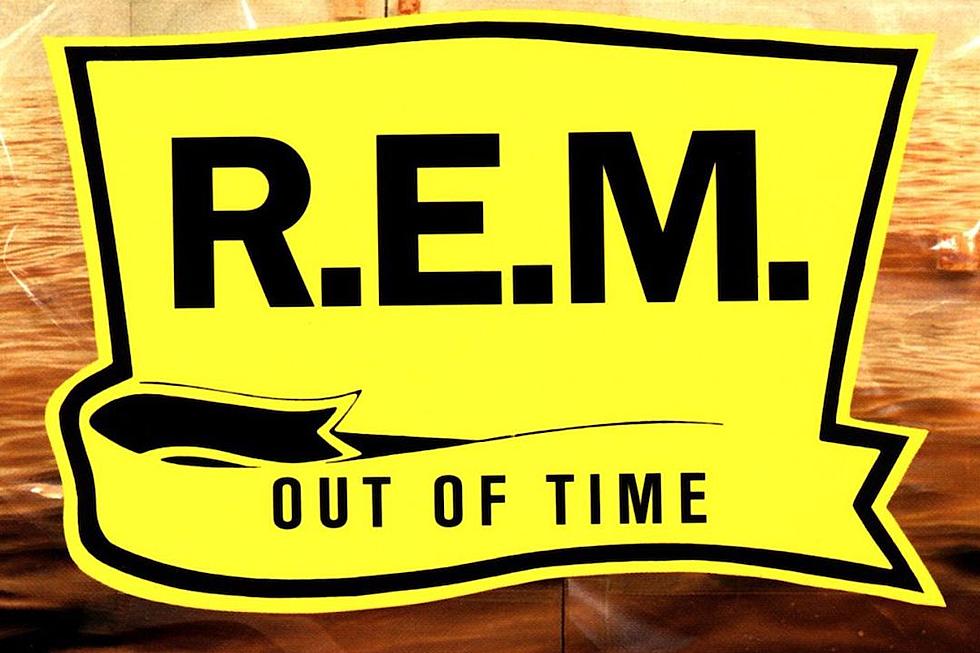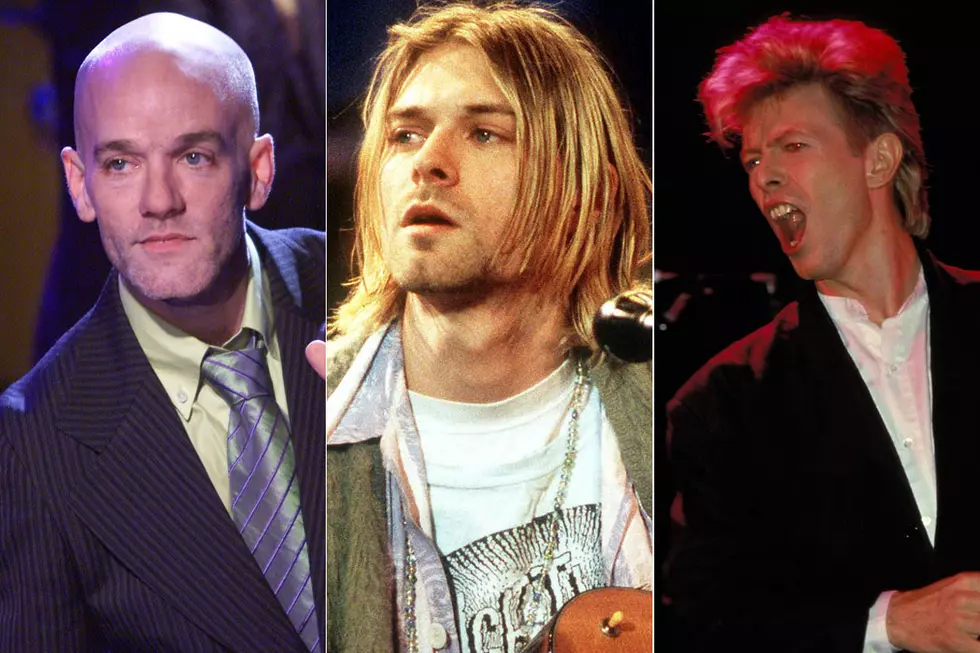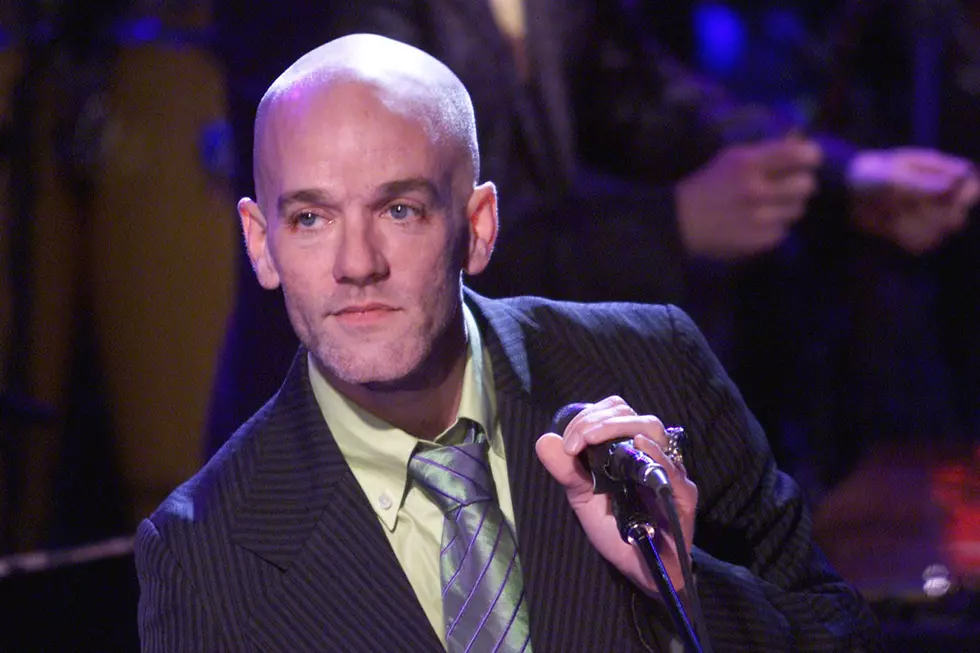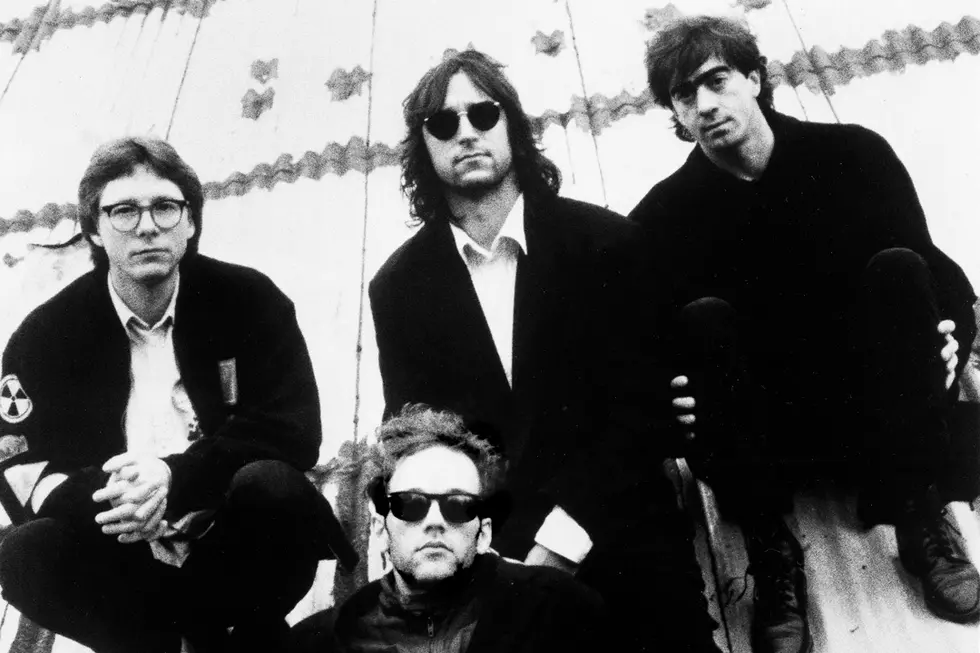Revisiting R.E.M.’s ‘Green’ World Tour
On Jan. 26, 1989, R.E.M. kicked off the Green World Tour at MZA Stadium in Tokyo, Japan. Unsurprisingly, the setlist skewed heavily toward the band's latest album, 1988's Green: The Athens, Ga., band opened the show with "Pop Song 89," and performed eight of the album's 11 tracks overall omitting only "The Wrong Child," "Hairshirt" and "Orange Crush." (The latter emerged the next night, prefaced with a snippet of the Army's melodic catchphrase, "Be All You Can Be.")
The rest of the setlist leaned heavily on 1986's Lifes Rich Pageant ("I Believe," "Begin the Begin," "Cuyahoga," "Just a Touch") and 1987's Document ("Finest Worksong," "Exhuming McCarthy," "Welcome to the Occupation," "Disturbance at the Heron House"), with a scattering of older tunes—notably, 1984's "Pretty Persuasion"—thrown in for good measure.
As the Green tour progressed and traveled to New Zealand, Australia, the U.S., U.K. and Europe throughout 1989, the shows followed a similar template, with tunes from 1982's Chronic Town EP ("Wolves, Lower," "1,000,000") being particularly welcome chestnuts. There were other surprises scattered throughout, of course. Vocalist Michael Stipe occasionally prefaced "World Leader Pretend" with some lines from Gang of Four's "We Live As We Dream Alone," while prior to "I Believe," he recited lyrics from Syd Straw's "Future 40's (String Of Pearls)" or the band's own rarity "Tired of Singing Trouble."
Covers were a staple of the tour: Hugo Largo's "Harpers," Velvet Underground's "After Hours," George Gershwin's "Summertime," Television's "See No Evil" and Syd Barrett's "Dark Globe" rotated in and out of the setlist. So did the Golden Palominos' "Boy (Go)," on which Stipe contributed lead vocals. Perhaps the most well-known re-do, however—likely because it ended up on the band's 1989 fan club holiday single—was a rip-roaring take on Mission of Burma's "Academy Fight Song."
The Green tour marked many firsts for the band. For example, the trek featured auxiliary musician Peter Holsapple (late of the dB's) adding guitar and keyboards, marking the first time R.E.M. expanded beyond a four-piece onstage. Although the band played a mix of U.S. auditoriums, college venues and arenas on 1987's Work Tour, it stuck to the latter for the Green tour, and played larger spaces overseas as well. This was partly due to popularity—Green was the band's first major label album, recorded for Warner Bros.—and partly out of necessity.
The tour featured the group's first forays into major video productions on stage, and these took the form of song-appropriate clips (e.g., trees and nature for "Fall on Me"), emphasis projections (words such as "HELLO" and "GOVERNMENT" flashing during "Pop Song 89") and deliberately detached "participation" banter moments. According to the R.E.M. Timeline, at a March 1, 1989, show in Louisville, Stipe read these three rules aloud: "No. 1: Don't stand on your seat as you may fall. No. 2 Don't hurtle missiles or throw things. No 3. Don't rush the stage as Peter doesn't like that."
Stage-wise, Stipe did some of the shimmies he exhibited during the videos for "Pop Song 89" and "Stand" during those songs, and sported a white suit, which drew comparisons to the boxier, large suit David Byrne sported during Talking Heads' Stop Making Sense. The attire was camera-ready: In 1990, R.E.M. released the concert film Tourfilm—which was filmed over five shows near the end of the tour—and the black-and-white footage of the performances was striking.
On Nov. 13, 1989—the day after the Green tour officially concluded—R.E.M. performed all of Green and 1983's Murmur back to back, during a benefit show at the Fox Theatre in Atlanta. It would be the last time to catch R.E.M. for a while: The Green tour was the group's last major, extended batch of concerts until 1995's Monster tour. R.E.M. had spent much of the '80s on the road, and the band needed an extended break. "We were physically, mentally, spiritually, emotionally spent," Stipe told the Los Angeles Times in 1994. "I thought I would never tour again. The idea to stop touring wasn't any strategy. It was survival."
R.E.M. Albums Ranked
More From 107.9 Jack FM








